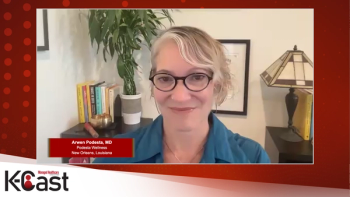
Three Types of Apps Changing Mental Health Treatment
Your favorite app store is likely filled with many mental health offerings. But what can they really offer?
There are now upwards of 10,000 mental health smart phone applications, or apps, already available for download in your favorite virtual store, according to
And for good reason: many experts suggest that such apps could help bridge important gaps that we currently see in behavioral health outreach and treatment, lowering costs, facilitating connection to treatment, and offering important self-management skills. Joshua A. Gordon, MD, PhD, director of the
“We already know that telehealth works. And smart phone or device
Gordon is right: not all apps are the same. And the vast majority of offerings currently on the market lack proper peer review and clinical validation. In fact, a recent
“There is great potential here, if it is done right,” she says. “We are very close to having apps that can be used in daily life by both patients and practitioners-we just need some better standardization and understanding of what these apps can really do.”
Related article:
Here are three types of mental health apps and what they can offer:
1. Education and assessment apps
Some apps you’ll find on the market are simply educational tools explaining different mental health disorders. Others are electronic versions of common metrics that mental health practitioners use to help identify people at risk for mental health issues.
“Many mental health apps are modern versions of questionnaires-and, on the whole, they do a good job,” says Varma. “But the problem with some of these instruments is that they are quite lengthy so they may not be as easy for patients or practitioners to use.”
2. Provider and peer connection apps
There are also a good number of apps that can help patients find-and even receive-talk therapy treatment from providers, no matter their location. There are also apps that help connect peers who share the same diagnosis to provide support. Gordon says that primary care physicians, who are often on the front lines of diagnosing mental health disorders, may use an app to help support them as they make diagnoses in the future.
“You can imagine a scenario where a patient meets with a mental health specialist via an app, as well as one where the primary care physician, who sees a patient regularly, connects when a mental health provider with an app when needed, and the patient doesn’t have to bother with a second appointment,” he says. “Those are two different ways to help identify and help patients who may be struggling with a disorder. But we haven’t done the empirical testing to see which one may be better yet.”
3. Treatment adherence and condition self-management
Another category of mental health app is one that supports patients as they self-manage their conditions. It may be as simple as offering reminders about taking prescribed medications-or offering a space to journal feelings to help recognize and prevent a potential mental health crisis. These types of apps are becoming more popular-and are often the ones that are being clinically tested by different hospitals and health centers.
“You will find apps out there to help track patients’ symptoms, or that offer self-management tools,” says Varma. “If you have been diagnosed with a mental health condition, it’s important to talk to a provider about which one of these apps might be right for you.”
Related article:
Both Gordon and Varma agree that we will be seeing more mental health apps enter the space in the next few years-but that it is important that people look for ones that have been empirically tested for efficacy, clinically validated, and-of course-recommended for their condition by their mental health specialist.
“There are a lot of potential uses for apps in mental health,” says Gordon. “But we want to make sure that these apps submit themselves to the same rigorous evaluation and peer review that any other intervention or treatment would be so patients know that they are using something that will offer real impact.”
Kayt Sukel is a science and health writer based outside Houston.
Newsletter
Get the latest industry news, event updates, and more from Managed healthcare Executive.



















